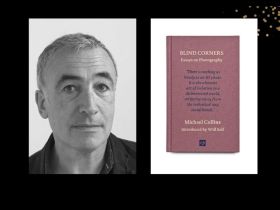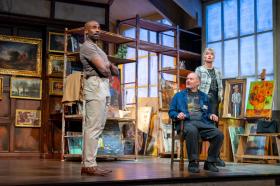Another budget, another chance to moan. Except this year the arts really do have something to lament. Or to put it another way, the arts have nothing to lament. This is because there was no mention of the arts or creative industries in the 2007 budget.
The omission may have been because the Chancellor didn’t want to draw attention to the blow his Budget has dealt to the arts by re-channeling £112 million Lottery money originally intended for Arts Council England into the burgeoning 2012 Olympics fund.
After cuts to Arts Council England (ACE) funding announced in the “arts friendly” 2005 Budget, the ACE was forced to deny funding to 121 organisations.
So far criticism of the Budget has been noticeably reserved. Peter Hewitt, chief executive of the Arts Council England, said he was “disappointed more money is to be diverted from the arts to pay for the Games.”
Hewitt is hopeful that an upcoming review of government spending later in the year will see ACE’s budget restored.
The message (or lack thereof) Brown’s “green” budget sends to the arts is confusing because it is at variance with sentiments expressed by Tony Blair last month.
In March the PM gave his warmly received “speech on the arts” at London’s Tate Modern. Blair claimed Labour had ushered in a new “Golden Age” for the arts.
The Guardian reproduced this speech in full, highlighting just how unambiguous the PM was in stating his belief that the arts ought to be part of government plans for the future.
Tony Blair said:
“I said that we would make the arts and culture part of our ‘core script’ … it was no longer to be on the periphery … but rather it was to be central, an essential part of the narrative about the character of a new, different, changed Britain … the arts, were going to be of fundamental importance to the country.” And so on.
Not only is Blair’s speech at odds with a Budget that doesn’t mention the arts, it also contradicts the government’s future spending agenda.
Later this year the Government will deliver the results of its Comprehensive Spending Review. The aim of the Review is to “to identify what further investments and reforms are needed to equip the UK for the global challenges of the decade ahead.”
After a disappointing budget this is the review that Peter Hewitt is hoping will bump up government spending on the arts.
The signs are not hopeful.
In November 2006 the Treasury published its report (Long-term opportunities and challenges in the 2007 Comprehensive Spending Review) examining the “key long-term trends and challenges” it believes will shape the next decade.
The report plays a key role in dictating the areas for discussion during the Review.
Given Blair’s commitment to making the arts and culture part of the government’s “core script”, one would expect the arts to feature in this report.
However, the only mention of the arts anywhere in the 156-page report is as follows:
“There are a number of other types of goods and services, on which societies are likely to spend an increasing share of their income as they grow richer. These include … Culture and sport: more prosperous societies will have the financial means to consume leisure-related goods such as culture (e.g. museums, the arts) and sport.”
It would appear the arts are being snubbed during the most important review of government spending for a decade. This comes regardless of Blair’s impassioned speech and the Chancellor’s previous statements in support of the arts.
In his 2005 Budget speech Brown insisted, “I am determined that in every area of our creative industries – now 8% of our national income – Britain supports the talents of our young people and promotes excellence.”
Unfortunately, despite Blair and Brown’s impressive use of rhetoric the arts have been pushed aside to make room for more important policy areas such as health, education, waste management and war.
It is, and probably always will be, politically expedient to cut the budget of initiatives like the Creative Economy Programme as opposed to cutting back on education.
If you are one of those people who look for silver linings, then this may not be such a bad thing.
Ever the optimist, Peter Hewitt believes that an increase in spending on education announced in the budget will benefit arts organizations, which have established partnerships with education.
Meanwhile, in “real terms” any cuts to government funding for the arts could spell closure for organizations reliant on public subsidy. The worrying thing about that is even the most successful and celebrated arts organizations, such as London’s Battersea Arts Centre, are not immune.
In the light of such an dismissive budget, it is up to those involved with the arts to heed ACE’s call to put pressure on the government so it doesn’t ignore the arts in the Comprehensive Spending Review.




